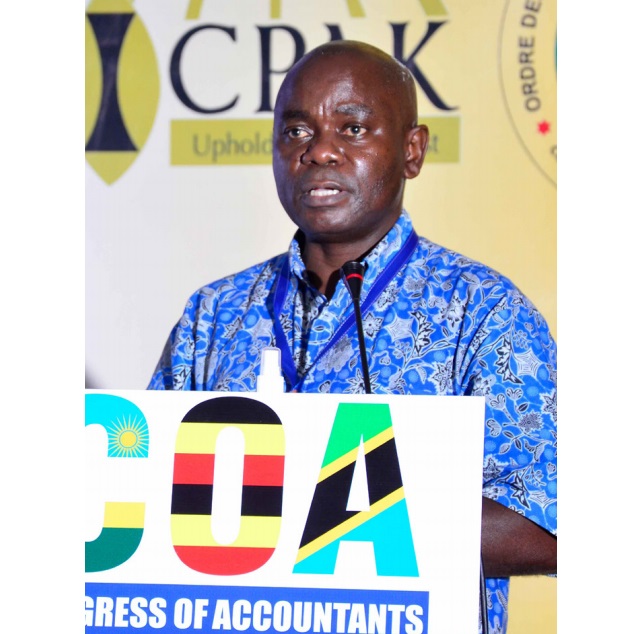
Kampala, Uganda | THE INDEPENDENT | Experts have given a cautious view of the proposed revival or re-establishment of the national co-operative bank.
Their skepticism mainly stems from the many years that have passed since the collapse of the cooperative bank, virtually more than 30 years ago.
Morgan Gyaviira Bonna, the Chairperson of Uganda Law Society Cooperative Society says the cooperative movement that started as early as 1913 in Uganda underwent several legal and structural changes, and along the way, regulations changed.
However, many more regulatory and legal changes have also taken place since the bank collapsed, and more changes can happen in the future.
Bonna said that this notwithstanding, there are some laws that cannot change and that the new cooperative bank should be ready to operate under such laws and regulations.
However, he was hopeful that since the government realized mistakes made in the collapse of the cooperative movement, it might make some concessional decisions in support of its revival.
The Minister of State for Trade Industry and Cooperation in charge of cooperatives, Fredrick Gume has for the last several years been pushing for the revival of the bank.
In August this year, the campaign got a new boost when the minister commissioned a steering committee for the formation of a national cooperative bank, with directives to make consultations across relevant stakeholders and report back by the end of October.
At one such consultation session in Kampala, economist Dr. Fred Muhumuza was skeptical that the bank would be able to achieve the objectives of the prompters including supporting cooperators at more convenient terms compared to what commercial banks offer today.
Dr Muhumuza, also a board member on several boards of financial institutions, said for example, there are limits on interest rates below which the bank would not be allowed to lend even to its own members.
In the same way, he said, the bank would have to abide by the rules on credit which sets what type and value of collateral the lender has to accept, according to the Bank of Uganda.
At least 10 trillion shillings are held in courts of law, in relation to conflicts arising from collateral.
Muhumuza also questioned the ability of the movement to raise the required resources, including the newly revised minimum capital reserves of not less than 150 billion shillings and 120 billion shillings for tier 1 and tier 2 institutions respectively.
Possible sources of such financial resources, including available money for lending, include members’ deposits, borrowing, and government capitalization.
These challenges, according to Muhumuza have seen some banks opt out and others taken over by others.
He also warned that the new bank will have to go by the economic and other situations that the country is in, citing the huge amounts that the government owes to the private sector.
This means, that such institutions are not attractive to lenders and the cooperative bank will also have to be cautious with them, even if they were members of the movement.
On the ability to mobilize resources, Uganda Cooperative Alliance General Secretary Ivan Asiimwe, said there are several models that they have suggested to help raise the money.
These include raising money from individual cooperators and the cooperative societies themselves.
“We have more than 43000 cooperative societies, catering for 15 million cooperators. Even if each person contributed 10,000 shillings, we would raise more than what is required,” Asiimwe said.
But, giving the example of Wazalendo Sacco, he also said that there are some cooperative societies that are bigger than some commercial banks and therefore capable of raising the required amounts.
Asiimwe insisted that the commercial banks have proved they cannot serve farmers, for example, catering for the time that a farmer takes to make an income from the money they have invested, so as to be able to start paying back.
Former Vice President of Uganda. Specioza Wandera Kazibwe said the strength of the cooperative movement was in their cooperation and this would be the sure way to achieve their aspirations.
She called for the harmonization of the laws but added that they should be improved in a way that they match the changing times, especially when the financial industry is becoming more digital-based.
A cooperative bank is one that many, especially in agriculture, hope will be the magic bullet to the reformation of the sector which has always cited lack of access to affordable finance as the main challenge.
Simon Peter Anyanzo, the chairperson of Moyo Sacco is upbeat the bank would resolve many of its challenges.
He, however, like many others, calls for a reform in the regulation structure so that there is one regulatory Authority for the cooperatives.
Currently, the savings and credit societies and other groups under the cooperative movement feel torn between being regulated by the Ministry of Trade, Industry and Cooperatives, the Uganda Microfinance Regulatory Authority, and the Bank of Uganda.
****
URN
 The Independent Uganda: You get the Truth we Pay the Price
The Independent Uganda: You get the Truth we Pay the Price


